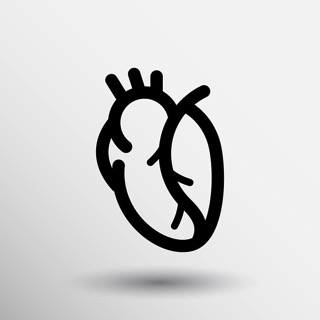
If you're one of the many people with high cholesterol, you may have been prescribed statin drugs and told to eat a low-fat diet — the standard advice for decades. However, experts have now reviewed the research and found there is no link between heart disease and total fat, saturated fat, or dietary cholesterol.
Statins made me forget where I parked the car
Cholesterol-lowering statins are among the most commonly prescribed and profitable medications in the world, taken by 25 percent of people over age 45. Touted to keep heart disease at bay, statin drugs are now known to be a cause of serious memory loss fuzzy thinking, learning difficulties, fatigue, muscle damage, and even diabetes.
Why do statins cause memory loss? The human brain is made up of 60 percent fat, much of that cholesterol. The brain uses cholesterol to build brain chemicals that allow neurons to communicate with one another. Without cholesterol, the brain's cells eventually die from inactivity. Over time, this results in memory loss and other brain disorders. In studies of the elderly those with high total cholesterol actually have reduced risk of dementia – likely due to their body's plentiful supply of this brain-supporting substance.
Cholesterol and heart attack risk
In a review of 72 studies researchers found that most heart attack patients' cholesterol levels did not indicate cardiac risk; in fact, 75 percent of them had normal, not high LDL ("bad") cholesterol. Even more surprising, 90 percent of them had HDL (“good”) cholesterol levels under 60. Additionally, low HDL is a warning sign for pre-diabetes, and most of these patients had pre-diabetes, or "metabolic syndrome." We now know that low HDL, not high LDL, is the real driver behind most heart attacks and heart disease, which changes the game on cholesterol management.
What about dietary fat?
Consider the following regarding low-fat diets. (Keep in mind this refers to intake of healthy fats):
- High-fat diets lower triglycerides normalize LDL (bad cholesterol), and increase LDL particle size. LDL cholesterol comes in two sizes; large particles that move freely, causing no harm, and small particles that embed in artery walls, causing inflammation the buildup of plaque. You want fluffy large particles.
- The National Institutes of Health reported that increasing fat intake to 50 percent of calories improved the nutritional status of heart study participants, and didn't negatively affect heart disease risk factors.
- The 2015 U.S. Dietary Guidelines Advisory Committee reviewed all the research over 40 years and told us to stop worrying about dietary cholesterol, arguing it is "not a nutrient of concern for overconsumption."
- People who consume low-fat diets are at increased risk for depression and suicide (remember how the brain is made from 60 percent fat).
- And here's the clincher: Harvard School of Public Health recently admitted that when it comes to disease prevention, low-fat diets don't appear to offer any special benefits. It's sugar and refined carbohydrates that contribute to obesity, pre-diabetes, heart disease, and many other health issues.
If not fat, what causes heart disease?
Here are five important factors in heart disease risk:
- Inflammation in the body.
- Free radicals that attack LDL and turn it from large (unharmful) into small (harmful) particles.
- Trans fats that increase inflammation and raise triglycerides.
- Sugar, which is inflammatory, promotes plaque formation in arteries, and raises stress hormones.
- Stress, which increases blood pressure and causes other heath issues.
Ask my office how to have better heart health.



Latest from the Blog
The Death of Red Dye #3
January 15, 2025What Is Red Dye No. 3? Red Dye No. 3, or Erythrosine, is a synthetic food color derived from coal tar. It was first approved by the FDA in the 1950s and quickly became one of the most popular artificial colors in food and cosmetics. Red Dye No. 3 was used in everything from candies, […] Read more
Latest from the Blog
Do You Know What Is In Your Protein Powder?
What’s Really in Your Protein Powder? Understanding the Risks Protein powders are a staple in many health-conscious diets, from athletes seeking muscle recovery to those simply aiming to boost their daily protein intake. With a wide variety of options available, choosing the right one can feel overwhelming. However, recent findings have raised concerns about what’s […] Read more